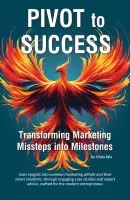- +1 512-591-8295
- [email protected]
- Mon - Fri: 9:00 - 16:00

As an entrepreneur, your mindset can make or break your business journey. Many entrepreneurs start with a narrow focus on their product or service, but fail to adopt the strategic, holistic perspective that successful CEOs possess. This myopic view often leads to costly mistakes, such as hiring based on familiarity rather than strategic needs or neglecting crucial areas of the business.
The truth is, regardless of whether you’re a solopreneur or leading a growing startup, thinking like a CEO can be a game-changer. It’s a common misconception that you need to be the head of an incorporated business (such as a C-corp or S-corp) with a formal board to call yourself a CEO. My own mindset was stuck in that rut of “what’s the real definition of a CEO” for a while, and I had to pivot my own thinking to see a massive shift in my own business.
In reality, the CEO mindset is about approaching your business with a visionary, strategic, and growth-oriented perspective—a mindset every entrepreneur should strive for.
A Chief Executive Officer (CEO) is the highest-ranking executive in a company, responsible for making major corporate decisions, managing overall operations and resources, and ensuring the organization’s long-term success. However, being a CEO goes beyond just a job title – it’s a mindset characterized by strategic thinking, leadership, and a relentless focus on growth and innovation.
What it doesn’t mean is that you know it all.
And it also doesn’t mean is that you do all the hands-on work.
An owner of a business has a financial stake and may be solely or jointly responsible for the company. Owners tend to be heavily involved in day-to-day operations, executing tasks, and generating immediate revenue.
Owners often wear multiple hats, micromanaging various roles within the organization.
In contrast, a CEO adopts a more strategic and visionary approach, focused on high-level decision-making, resource allocation, and long-term growth. While owners are consumed by short-term operational details, CEOs prioritize building and empowering a team to handle execution while they concentrate on crafting strategies, seeking opportunities for innovation, and adapting to market changes.
CEOs take a broader, big-picture view, continuously exploring ways to drive the company forward and stay ahead of the competition. This distinction between the hands-on, task-oriented owner mindset and the strategic, growth-focused CEO mindset is crucial as businesses scale and evolve.
As the CEO of your business, your primary responsibilities should include:
For entrepreneurs, adopting the CEO mindset is crucial for several reasons:
It’s easy to get bogged down in the day-to-day tasks and lose sight of the big picture. Thinking like a CEO forces you to step back and take a strategic, long-term view of your business.
As the leader, your role should be to set the vision and direction, not get caught up in every operational detail. The CEO mindset empowers you to delegate tasks and focus on strategic priorities.
CEOs are constantly exploring new opportunities, analyzing market trends, and seeking ways to innovate and stay ahead of the curve. This growth-oriented mindset is essential for any entrepreneur looking to scale their business.
According to a study by the Harvard Business Review, entrepreneurs with a growth mindset were three times more likely to achieve high revenue growth compared to those with a fixed mindset.
Adopting the CEO mindset can yield numerous benefits for entrepreneurs, including:
Better decision-making and resource allocation: With a strategic, big-picture perspective, you’ll be better equipped to make informed decisions and allocate resources (financial, human, and technological) in a way that drives growth and maximizes returns.
Improved leadership and team management: As a CEO, you’ll develop strong leadership skills, empowering your team, setting clear goals, and fostering a culture of accountability and ownership.
Enhanced strategic planning and execution: CEOs excel at crafting long-term strategies and ensuring their effective execution. This proactive approach helps you stay ahead of the competition and navigate challenges more effectively.
Increased accountability: When you think like a CEO, you take full responsibility for the success or failure of your business. This mindset cultivates a sense of ownership and drives you to constantly improve and adapt.
Greater capacity for innovation and adaptation: CEOs are always on the lookout for new opportunities, trends, and ways to innovate. This mindset allows you to stay agile and adapt to changing market conditions, giving your business a competitive edge.
A study by the Center for Creative Leadership found that CEOs who prioritized strategic thinking were 63% more likely to lead their companies to long-term success.
Shifting to a CEO mindset requires conscious effort and deliberate actions. Here are some practical steps to help you cultivate this mindset:
One of the biggest pitfalls entrepreneurs face is hiring based on familiarity rather than strategic needs. For example, a designer turned CEO might instinctively hire more designers, focus on design while ignoring other aspects of the business, or purchase more design software instead of something that may be more critical at the moment such as accounting software, instead of exploring other essential roles necessary for growth.
To avoid this trap, entrepreneurs need to ask themselves the following questions:
Self-awareness and identifying blindspots are key to adopting the CEO mindset.
Even the most skilled entrepreneurs can’t possibly excel in every area of business. That’s why it’s crucial to seek external expertise in areas outside your core competency. This is one of the reasons you will never find me running an accounting business.
For instance, you may be a brilliant product developer but lack knowledge in finance, marketing, or operations. Or you may have excelled in your career as a home contractor but lack experience in doing the scheduling and billing. In such cases, leveraging fractional or part-time experts (such as a Fractional CMO) can be a game-changer.
The benefits of external expertise include:
A survey by the Entrepreneurs’ Organization found that 82% of successful entrepreneurs cited mentorship as a key factor in their growth and development.
I am a big fan of SCORE – Service Corps of Retired Executives, a program by the Small Business Administration. You can meet one-on-one with a business executive to help you find answers to some of the questions you need to shift your focus to. I served as a SCORE mentor for years, and have also used the service to access business mentors myself. I recommend taking those questions from the “Ask the right questions” section above and asking your mentor to go through those with you.
As the CEO, your role is to set the vision, strategy, and direction – not to get bogged down in operational tasks. To truly embrace the CEO mindset, you must learn to delegate responsibilities and empower your team (if you have one … and if you don’t you will want to read our article on Growing Your Dream Team) to handle day-to-day operations.
Transitioning from a “doer” mindset to a strategic leadership role is crucial. Trust your team, provide clear goals and expectations, and allocate your time and energy towards strategic planning and vision.
A study by Gallup found that companies with a strong strategic plan were 12 times more likely to successfully execute their business goals.
Adopting the CEO mindset is not without its challenges. Here are some common obstacles entrepreneurs face and how to overcome them:
Research by the National Association of Women Business Owners found that 66% of female entrepreneurs struggle with imposter syndrome at some point in their careers.
4. Balancing strategic thinking with operational responsibilities: While the CEO mindset emphasizes strategic thinking, you’ll still need to be involved in certain operational aspects, especially in the early stages. Prioritize and allocate time accordingly, but don’t lose sight of the big picture.
Adopting the CEO mindset is a game-changer for entrepreneurs. It shifts your perspective from a narrow, operational focus to a strategic, visionary, and growth-oriented approach. By thinking like a CEO, you’ll make better decisions, lead more effectively, foster innovation, and position your business for long-term success.
Embrace this mindset shift by asking the right questions, seeking external expertise, delegating responsibilities, and overcoming self-doubt. Remember, you don’t need a fancy title or a corporate structure to think and act like a CEO – it’s a mentality that every entrepreneur should cultivate.
So, take the leap, start thinking like a CEO, and watch your business soar to new heights.
Schedule a Free 360° Marketing Consultation
to discuss ways that you can pivot your focus into your CEO role
Get solid marketing strategies, designed for entrepreneurs on the track to 7-figures and beyond, right in your inbox.

This website uses cookies to ensure you get the best experience on our website. By continuing to use the website, you agree to our use of cookies. We do not share or sell your information. More info
